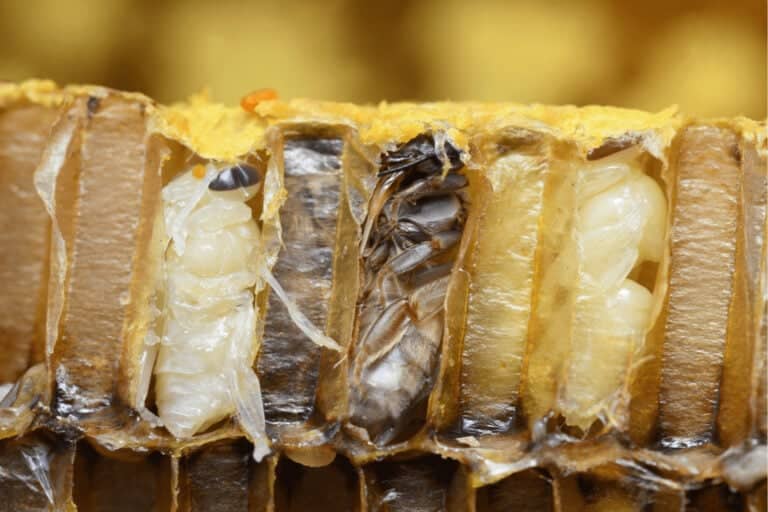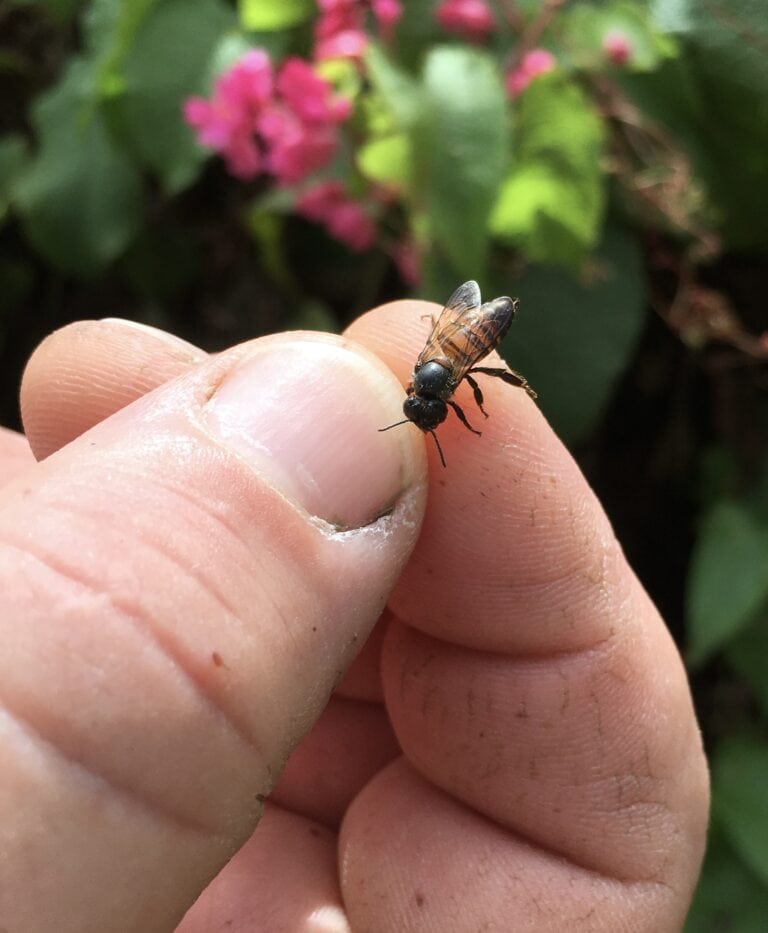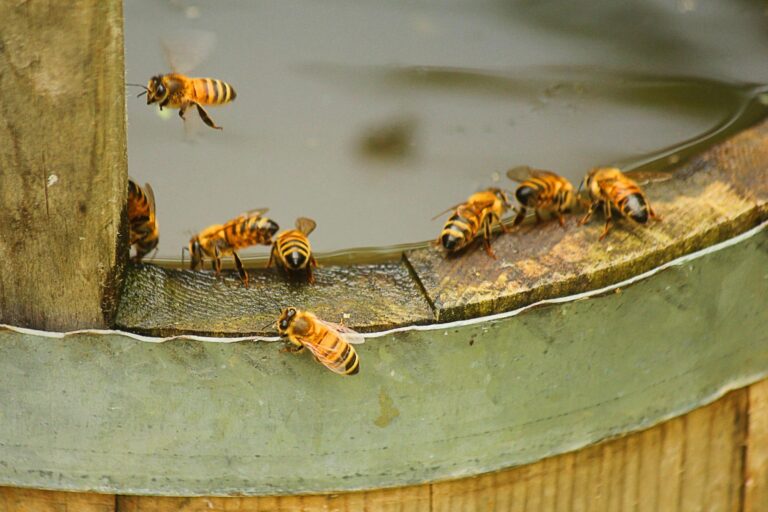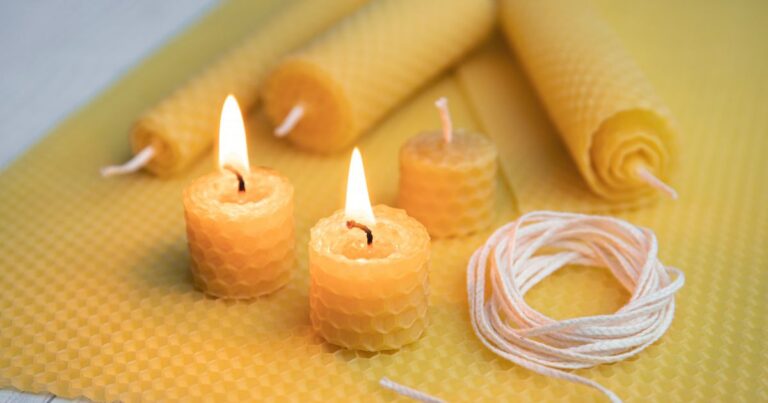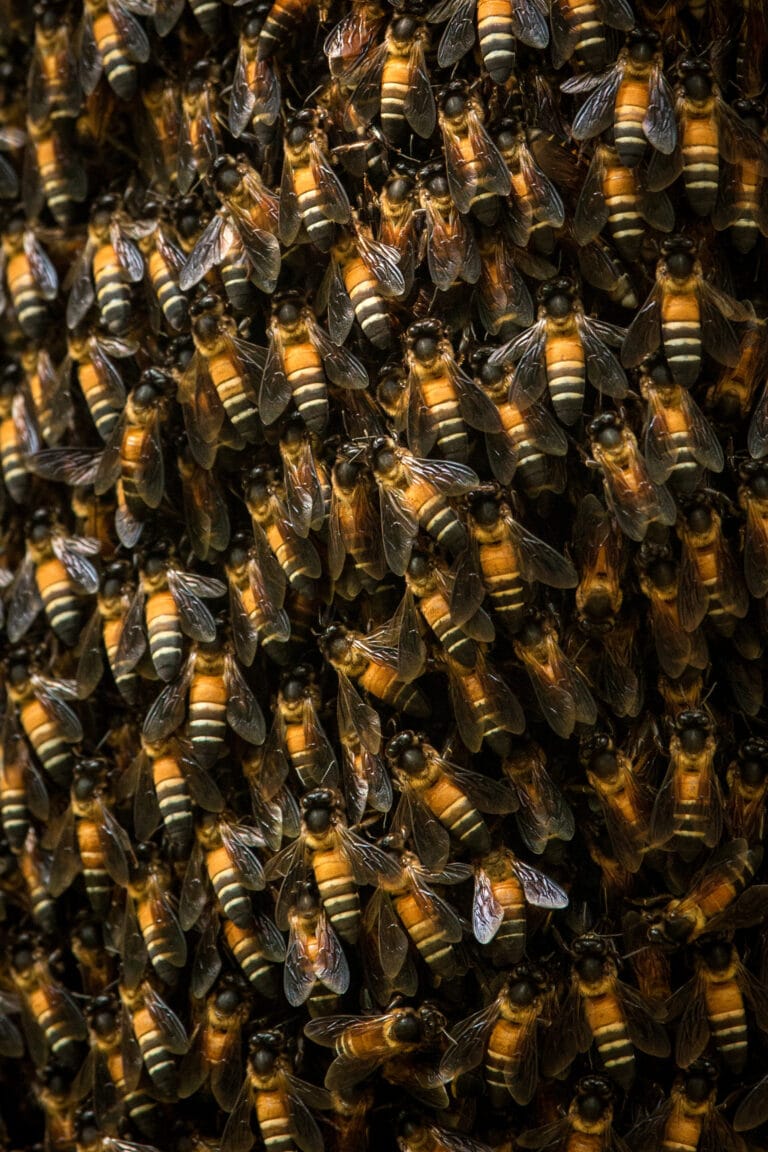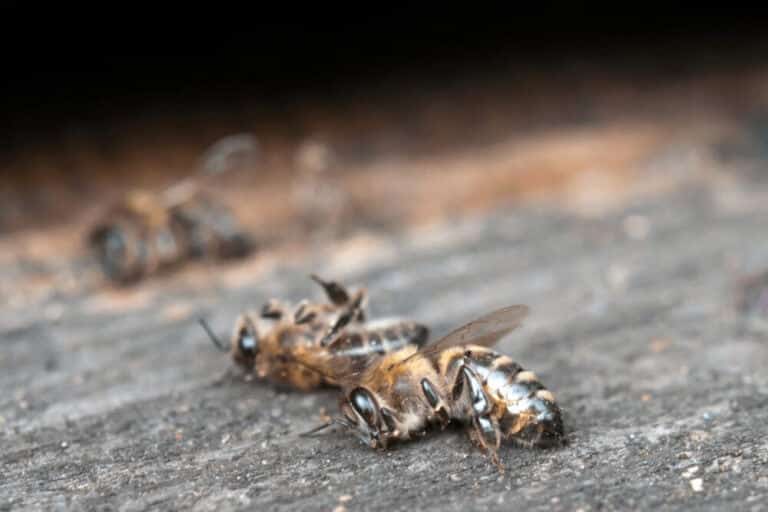Do Bees Sleep? The Fascinating World of Bee Sleep
Have you heard of the saying, ‘as busy as a bee’? Honey bees are so hardworking! But do bees sleep? Find out about the fascinating world of bee sleep.

Have you ever found yourself wondering about the secret lives of bees? These tiny, hardworking creatures are essential to our ecosystem, pollinating our crops and producing delicious honey. But amidst their busy lives, do bees find time to rest? The answer may surprise you!
In this article, we’ll explore the fascinating world of bee sleep, uncovering the latest scientific findings and delving into these incredible insects’ unique sleeping habits.
Whether you’re a seasoned beekeeper, a curious nature lover, or simply someone who appreciates the wonders of the natural world, join us as we unravel the mysteries of bee sleep.
Do Bees Actually Sleep?
Perhaps it seems obvious that the answer is a resounding ‘yes’. However, positive confirmation of this curious question wasn’t confirmed until the 1980s, through the observations of researcher Walter Kaiser.
However, bees’ sleep patterns and habits are quite different from those of humans. Bees don’t have eyelids, so they can’t close their eyes to sleep. Instead, they enter a state of rest known as “torpor,” where their metabolic rate slows down and they become less responsive to external stimuli.
Just as mammals and other animals adopt a relaxed pose when sleeping, bees’ antennae become inert and droop downwards, and their legs flex, folding underneath and allowing heads and bodies to drop, while the wings rest on the body.
Sometimes, sleepy bees may even topple over sideways!
Circadian Rhythms Of Bees
Like humans, bees have an internal biological clock called the circadian rhythm. This rhythm is influenced by factors such as light, temperature, and the availability of food.
Bees are diurnal, meaning they are most active during the day and rest at night. However, their sleep patterns can vary depending on their role within the colony and the time of year.
Sleep Patterns of Different Bee Castes
A honey bee colony has three main castes (classes): the queen, the workers, and the drones. Each caste has its own unique sleep patterns.
#1: Queen Bees
The queen bee is the only female in the colony capable of laying fertilised eggs. She spends most of her time laying eggs and is attended to by worker bees. Queens have been observed resting for brief periods but don’t appear to have a regular sleep schedule.
#2: Worker Bees
Worker bees are the backbone of the colony, responsible for tasks such as foraging, nursing, and cleaning. They have a more structured sleep pattern, with most of their rest occurring at night. Younger worker bees, known as “nurse bees,” tend to sleep more than their older counterparts, the “forager bees.”
#3: Drone Bees
Drones are male bees whose primary purpose is to mate with the queen. They are known to sleep for longer periods than worker bees and often congregate in large groups outside the hive during the day.
Bees have also been observed sleeping in flowers or upon grass stalks. Like many other animals, including humans, the first item on the agenda for honey bees when they wake up is to go to the toilet – and they immediately set about grooming themselves.
The Importance of Sleep for Bees
Sleep is crucial for bees, just as it is for humans.
It allows them to conserve energy, consolidate memories, and maintain their health. Studies have shown that sleep-deprived bees have impaired memory and learning abilities, negatively impacting their foraging efficiency and overall colony productivity.
Factors Affecting Bee Sleep
Several factors can influence a bee’s sleep patterns, including:
- Age: As mentioned earlier, younger bees tend to sleep more than older bees.
- Role within the colony: Bees with different roles, such as nurse bees and forager bees, have varying sleep requirements.
- Environmental conditions: Extreme temperatures, changes in light levels, and other environmental factors can disrupt bee sleep.
- Pesticide exposure: Certain pesticides have been shown to interfere with bee sleep, potentially contributing to colony collapse disorder (CCD).
Scientists have found humans who do not receive adequate sleep fall into a situation of ‘sleep debt’ in which cognitive processes, reaction times, and motor functions are impacted.
Sleep-deprived rats will exhibit weight loss (despite increased food intake) and other symptoms consistent with impaired immune function. If completely deprived of sleep, they will eventually die within weeks.
Similarly, honey bees deprived of sleep have difficulty finding their way home, cannot effectively perform the waggle dance, and exhibit other signs of fatigue.
Bumblebees survive the rigours of winter by hibernating. This state of torpor enables them to conserve energy. Hibernation greatly reduces the need for sleep but does not erase it entirely; sometimes, animals will terminate their hibernation just so they can go to sleep!
How To Help Bees To Sleep Better
If you’re a beekeeper, there are several things you can do to promote better sleep for bees:
- Ensure your hives are in a quiet, sheltered area away from excessive noise, artificial light and disturbance.
- Provide adequate ventilation and temperature control within the hive to create a comfortable environment for rest.
- Minimise hive inspections and other disruptions during the night when bees typically sleep.
- Avoid using pesticides or chemicals near your hives that could interfere with bee sleep.
- Ensure your bees have access to a diverse range of forage to support their nutritional needs and overall health.
Find out what plants bees are most attracted to in Bees and Flora: The Rules of Attraction.
Summing it all up: Do bees sleep? Yes, they do! But their sleep patterns and habits are quite different from our own. Understanding bee sleep is crucial for beekeepers, as it can provide valuable insights into the health and productivity of their colonies. By creating optimal conditions for bee rest and minimising disruptions, we can help ensure the well-being of these vital pollinators.
Frequently Asked Questions About Bee Sleep
Below are the most commonly asked questions about bees and sleep.
How long do bees sleep?
The duration of bee sleep varies depending on factors such as age, caste, and role within the colony. Walter Kaiser, who observed the first recorded sleep in an invertebrate, discovered worker bees sleep for an average of five to eight hours daily, while drones may sleep longer.
Can bees sleep while flying?
No, bees cannot sleep while flying. They need to land and enter a state of rest to sleep.
Do bees dream?
While we don’t know if bees dream, some scientists believe they may experience a “sleep replay,” where they process and consolidate memories from their waking hours.
How can I tell if my bees are sleeping?
Sleeping bees will appear motionless and less responsive to external stimuli. You may observe them resting on the comb or clustered together in groups.
Can bees suffer from sleep disorders?
While there is limited research on sleep disorders in bees, some studies suggest that factors such as pesticide exposure, disease, and environmental stressors could potentially disrupt their sleep patterns and lead to health issues.

